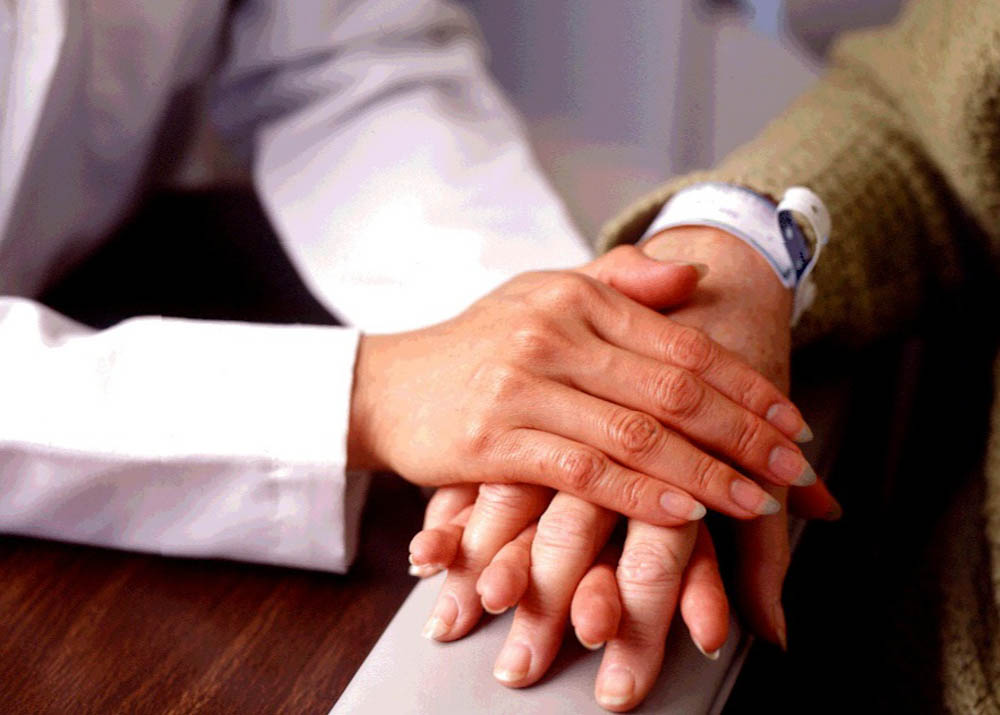A cancer diagnosis and subsequent treatment can come with many different emotions: anger, frustration, fear, anxiety, and sadness. For some patients, that sadness can become a serious issue; approximately one quarter of cancer patients become depressed during or after treatment.
“Patients will have feelings of sadness and a lack of energy from time to time – these ups and downs are expected during the challenges of cancer treatment,” says Christopher Recklitis, PhD, MPH, director of research at Dana-Farber’s Perini Family Survivors’ Center and a senior psychologist in the Department of Psychosocial Oncology and Palliative Care. “We often identify how strong people can be during cancer treatment — how they can thrive and survive — but sometimes people compare themselves to those positive images and feel like they fall short. We need to remind ourselves that not everyone feels strong every day, and that’s OK; it doesn’t mean something is wrong with you.”
 How do I know if I’m depressed?
How do I know if I’m depressed?
Depression is not just feeling sad; it is a specific disorder and should be treated. But the signs and symptoms of depression can be hard to recognize.
Recklitis recommends looking for the following:
- Prolonged sadness – It is common for patients to experience sadness, but if the patient feels intense sadness for multiple days at a time, they may be suffering from depression and should seek medical help.
- Feelings get in the way of functioning – When a patient is depressed, intense sadness or hopelessness can prevent them from seeing friends and family, and from functioning on their own.
- Loss of interest – Patients suffering from depression may lose interest in activities that previously brought them pleasure or happiness.
- Disrupted sleep and eating schedules – Depression can cause sleep problems, such as insomnia, and may also affect appetite.
“If feelings of depression are severe or getting in the way of functioning, and these feelings last more than a few days, then it is important to seek help,” Recklitis says.
Are certain patients more at risk for depression than others?
While depression can happen to anyone, Recklitis says women, younger patients and single patients tend to be more at risk. Chronic pain, pre-existing anxiety, depression, or substance abuse can also increase the risk for depression.
Cancer patients may experience physical health changes like anemia, or changes in hormonal functioning that can contribute to symptoms of depression. Certain medications have side effects that can contribute to depression, so it is important to communicate with your doctor or care team about any feelings of depression and any medications you are taking in addition to your cancer treatment.
Learn more:
Does depression affect patients after treatment?
Depression can affect patients both during and after treatment. Feelings of isolation or loss can sometimes cause depression in survivors, as patients may have lost jobs, friendships, or certain physical abilities due to treatment.
What do I do if I’m feeling sad during or after treatment?
If you or a loved one feel sad during or after cancer treatment, it is important to speak with your physician or care team. Even if you are not suffering from depression, your care team can refer you to a social worker or find other ways to help you cope with the emotional ups and downs of treatment.
“We want to know how you’re feeling – not just physically, but emotionally, too,” Recklitis says. “If you’re feeling down, or having difficulty coping with treatment, let us know what’s on your mind and we will find the resources and the right people to talk with you.”
More information and resources, including how to make an appointment with a psychiatrist, psychologist, or social worker, are available through Dana-Farber’s Department of Psychosocial Oncology and Palliative Care.
